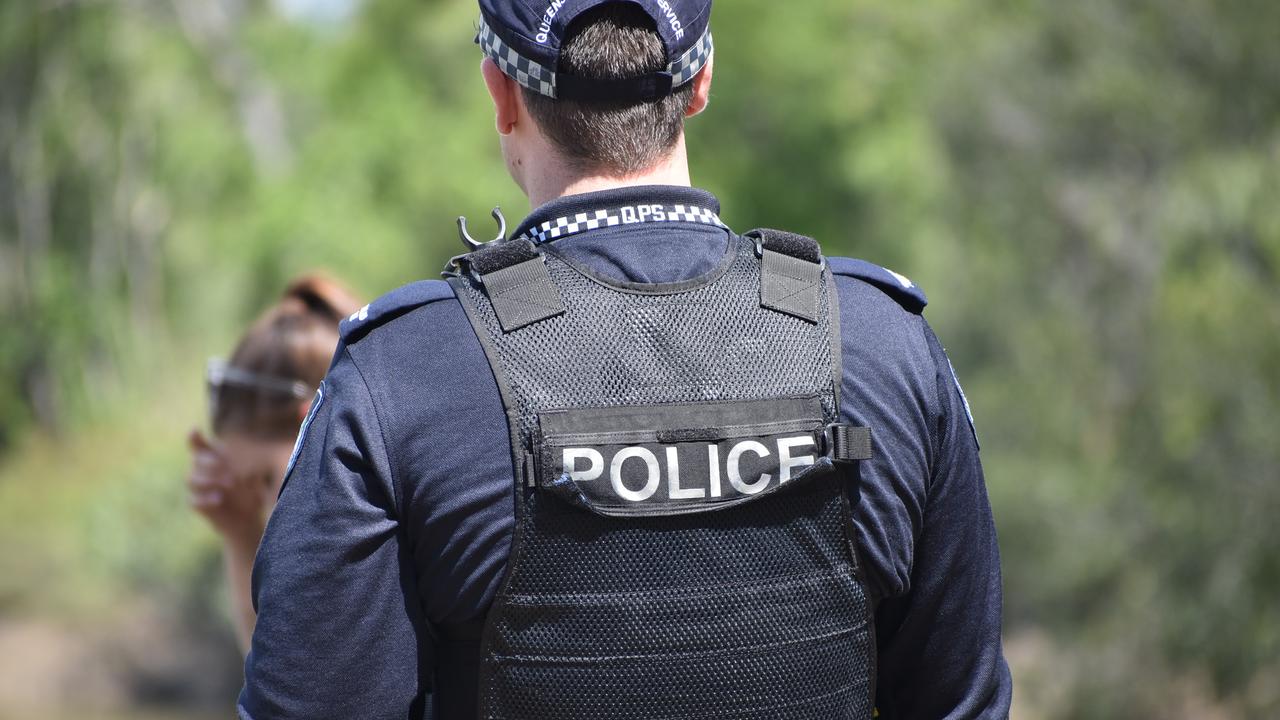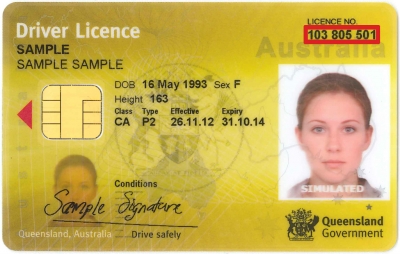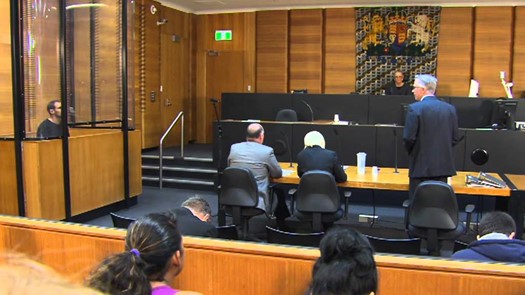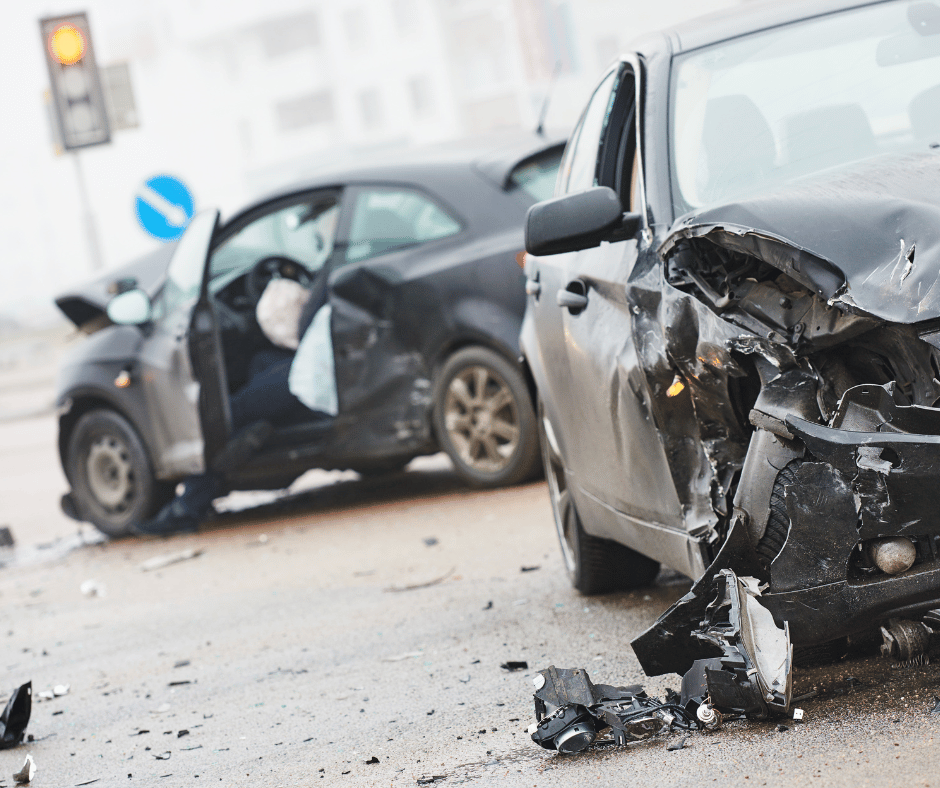Careless Driving
Driving without due care and attention or more commonly known as careless driving is a fairly common traffic offence that can bring people before Queensland courts.
This article is designed to be the most comprehensive article on careless driving charge in Queensland. We will cover the different types of careless driving charges, the penalties for careless driving, the court process and why you might want to engage a lawyer for a careless driving charge.
Types of careless driving charges
In Queensland careless driving or driving without due care and attention is divided into the following charges.
Careless driving
- Careless driving causing death or grievous bodily harm
- Careless driving causing death or grievous bodily harm (whilst unlicensed)
The arrest process
The most likely cause to be arrested for careless driving is there has been an accident and the police have attended the accident scene.
In general it would be very unlikely a driver would be arrested at the crash site, more likely the police would attend, take statements and photos etc and then some time later determine that a driver is at fault and arrest them and give them a notice to appear in court.
Where it is alleged that someone has been killed or has suffered very serious injuries then most likely the forensic crash unit (FCU) would investigate. Less serious crashes would generally be investigated by general service police officers.
Remember you have the right not to give a statement to police. This right to silence cannot be taken away from you and in most cases you should never give a formal interview to police.

How does the law define careless driving?
Careless driving (driving without due care and attention) or reckless driving, although the charge is less serious than dangerous driving, which is a criminal charge, it can still carry a driver licence disqualification period and fine. For charges of careless driving causing death or grievous bodily harm then imprisonment is a real possibility.
Section 83 of the Transport Operations (Road Use Management) Act 1995 states that a person commits an offence if he or she drives a motor vehicle or a road or elsewhere:
- without due care and attention; or
- without reasonable consideration for other persons using that road or place.
It is important to note that the legislation does not provide a definition for what is due care and attention or reasonable consideration for other persons. Where the words are not defined in the act then we need to look to what the courts in the past have said the definition mean.
In Johannsen v Zeller ex parte Zeller [1958] Qd R 366 the court talked about the lack of due care meaning;
failure to exercise the degree of care and attention that a reasonable and prudent driver would have exercised
In Crispin v Rhodes (1986) 40 SASR 202 the court talked about due care as adequate caution in all the circumstances; watchfulness, caution and vigilance is required. It went on the say that;
The standard, it will be noted, is not that of the exceptionally careful man, nor is it that which the actual driver may consider to be sufficient, but the standard of the average man who has regard for the safety and the rights of others. The duty is reciprocal, and, therefore, the burden lies equally on each for the benefit of all
In Milkins v Roberts [1949] SASR 215 the court described due care as;
Due care’. . . does not connote `care due’ to some other person. `Due care’ means, I think, `adequate caution in all the circumstances’
So what is the definition of careless driving? in essence the meaning of careless driving is a failure to drive to the standard that a reasonable driver on Queensland roads who drives in a careful manner would have.
It is critical to understand that just because there is an accident it does not automatically follow that a driver has driven without due care and attention. If the driver was in fact exercising the degree of care and attention which a reasonably prudent driver would exercise, they ought not to be arrested (or found guilty), even though another and perhaps more highly skilled driver would have acted differently.
This is a key point and one that even police officers often get wrong, it does not mean there has a be a charge when an accident happens, even very serious ones, if the driver was in fact driving with a degree of care and attention that a reasonable and prudent driver would have shown.
Why would I be charged with careless driving?
Typically the police issue careless driving charges for traffic accidents where they feel the driver is at fault. The police must be satisfied that you drove without due care and attention or without reasonable consideration for other road users.
You can be charged with careless driving even if you are driving on private property. The law states the offence can occur on a road or elsewhere.
You can also be charged with careless driving even if there is no other cars involved and even if there is no accident or damaged caused. For example, you can be charged with careless driving if you take off from traffic lights in an overly aggressive manner. This can be taken by the police to be careless driving although there was no accident or damage caused.

What court will hear a careless driving charge?
The magistrates court will hear the charge. The police will issue a notice to appear in the magistrate’s court closet to where the alleged offence occurred. You can check the contact details of the magistrate’s court by clicking here.
What penalty does a careless driving charge carry?
This information is just for careless driving if someone was killed or suffered GBH see the next section for the penalties.
Whilst the maximum penalty is $4,000 and 6 months imprisonment the courts generally issue fines for careless driving charges. The court also has the ability to impose a disqualification period if the circumstances warrant although it does not have to impose a disqualification. The disqualification, if imposed, can range from 1 month to an absolute disqualification. Absolute disqualification means you are disqualified for a minimum of 2 years, at which time you can apply for a licence reinstatement.
Generally we have found the courts look to impose a disqualification of around 3 – 6 months if the offence is fairly serious although this can go higher depending on the circumstances. If another driver is injured in the accident then a disqualification is almost certain.
Careless driving is also classed as a type 1 hooning charge which can have quite severe consequences. For the first Type 1 offence, the vehicle you were driving can be impounded or immobilised for 90 days. For the second offence the vehicle can be impounded and may be confiscated at the end of any legal proceedings against you.
Careless driving causing death or grievous bodily harm
In 2018 the government created a new charge of careless driving death or grievous bodily harm (GBH). The offence mandated a minimum disqualification period of 6 months and increased the maximum prison sentence from 6 months to 1 year (or 2 years if the driver was unlicensed).
Grievous bodily harm is defined to mean the loss of a distinct part or organ of the body or serious disfigurement or any bodily injury of such a nature that, if left untreated, would endanger or be likely to endanger life or cause or be likely to cause permanent injury to health. It is immaterial whether medical treatment is or could have been available to the injured person.
This is a very serious charge that requires expert legal help, We have a detailed article on careless driving causing death or grievous bodily harm
Careless driving v reckless driving v negligent driving
In Queensland the charge is known as careless driving, other states and overseas jurisdictions often use the term reckless driving or negligent driving. You will rarely hear lawyers, or the magistrates or prosecutors use the term reckless or negligent driving, careless driving is the term used in Queensland.
What is the difference between careless driving and dangerous driving?
Dangerous driving is the more serious charge and generally reserved where the actions of the driver could be considered dangerous rather than merely careless or without due care and attention. In deciding whether the driving was dangerous the court looks at the speed the vehicle was driven and whether the driving was dangerous to the public having regard to all the circumstances including:
- the nature, condition and use of where the accident occurred
- the nature and condition of the vehicle
- the number of persons, vehicles or other objects that are, or might reasonably be expected to be in the area
What will happen in court?
The court process for a careless driving charge in Queensland is typically;
- you are arrested or given a notice to appear in court
- you attend court on the appointed day
- you are asked if you are pleading guilty or not guilty or seeking adjournment
- if you are seeking an adjournment you are given another court date
- if you are pleading guilty then the prosecutor will tell the magistrate what occurred
- the prosecutor will also hand up any traffic or criminal history you may have
- the magistrate will then give you an opportunity to explain what occurred, what your situation is and why your licence should or should not be disqualified
- the magistrate then gives their decision on penalty
- If you plead not guilty the matter is adjourned for the police to give you a full brief of evidence and later a trial date is set

Will I lose my licence?
It very much depends on the circumstances of the incident that lead to the careless driving charge. If no person has been injured and your traffic history does not contain any previous similar charges then the court will not usually impose a disqualification. If however someone has been injured or you have a bad traffic history or there is a lot of damage done to the vehicles then the court might look to disqualify your driver’s licence.
With a charge of careless causing death of or grievous bodily harm must impose a minimum 6 month licence disqualification.
If I lose my licence can I get a work licence?
If disqualified you cannot apply for a work licence or hardship licence so if your licence is vital we will need to put your circumstances to the court to in such a way that we can ask the court not to impose any disqualification for the careless driving charge. We have had much success lately convincing the court not to impose a disqualification period for the charge of careless driving. We do this by undertaking extensive research, having you obtain character references and having you attend driving workshops.

Mitigating Factors
So how does the court try and arrive at a penalty?
First the court is going to look at;
- the maximum penalty prescribed for that offence
- the nature and seriousness of the harm done
- the previous convictions of the offender
- the offender's age, character and intellectual capacity
- the prevalence of the offence
Then there will look at mitigating factors, that is factors that would usually reduce the penalty the court might normally impose;
- an early guilty plea
- no criminal or traffic history
- significant physical or mental health issues
- rehabilitation efforts after the offence but before the sentence
- Character references
- Completing a Traffic Offender Program
- Completing a defensive driving course
Negotiations with the prosecutor
We have a whole article on negotiating with the prosecutor for traffic matters however in general negotiations with a prosecutor would fall into the following categories;
- Negotiations regarding the facts of what occurred
- Negotiations regarding a lower charge
- Negotiations regarding withdrawing the charge entirely
Negotiations regarding the facts of what occurred
The facts presented to the magistrate can change their perception of the matter and ultimately the penalty. Negotiations might make the facts more favourable.
Negotiations regarding a lower charge
The lower the charge the lower the penalty. Negotiations might reduce a charge of careless driving causing GBH to just careless driving and therefore a disqualification could be avoided.
Negotiations regarding withdrawing the charge entirely
The prosecutor has the ability to complete withdraw the charge where they cannot be certain they could successfully prosecute the driver or in the interests of justice.
If the charge is withdrawn the court throws the charge out and that’s the end of the matter.
Pleading Not Guilty
If negotiations over having the charge withdrawn are not successful and if the driver does not accept the charge then they have the right to take the matter to trial.
Trials for careless driving are heard in the Magistrates Court before a Magistrate but not a jury.
The police must prove beyond a reasonable doubt that the driver;
- Was the driver
- That they were driving at the time
- That the driving was done without due care and attention; or
- That the driving was done without reasonable consideration for other persons; and
- The act was unlawful (i.e. no defence existed)
In the case of a charge of driving causing GBP the police must prove the injuries to the other person were without the definition of grievous bodily harm. Grievous bodily harm means;
- the loss of a distinct part or an organ of the body; or
- serious disfigurement; or
- any bodily injury of such a nature that, if left untreated, would endanger or be likely to endanger life, or cause or be likely to cause permanent injury to health;
whether or not treatment is or could have been available.

Possible defences
Defect in the vehicle
A possible defence will arise if you prove that the vehicle suffering from a sudden and previously unknown defect which deprived you of control of the vehicle. In this case, you will be seeking to demonstrate that the careless driving was caused by the mechanical defect, and thus, was beyond your conscious control.
Sudden medical condition
You may be able to raise a defence if you prove that you experienced a sudden medical condition which caused you to lose conscious control of your body. For example, if you suddenly fall asleep, you cannot be responsible for what happens after you fall asleep, as you are no longer in conscious control of the vehicle. Like the defence of sudden mechanical failure, you must demonstrate that your medical condition was previously unknown to you and came on before you had a chance to take action. For example, you will not be able to raise this defence if you drove knowing that you were severely fatigued.
Driving for an extraordinary emergency
A person is not criminally responsible for an act or omission done or made under such circumstances of sudden or extraordinary emergency that an ordinary person possessing ordinary power of self-control could not reasonably be expected to act otherwise.
Accident
Speaking generally, a defendant is not criminally responsible for the consequences of an act or omission if they did not intend those consequences, or reasonably foresee them, and an ordinary person in their position would not have reasonably foreseen the consequences as a possible consequence of the act or omission either.
Young offenders and charges
Under the Youth Justice Act, which governs how the Children’s Court deals with child offenders, the legislation says that if a child if found guilty of an offence which would leave them liable, if they were an adult, to a period of disqualification, then the child must be disqualified to the same extent.
There are, however, multiple ways this outcome could potentially be avoided.
- If police caution a child in relation to an offence for which they could have been disqualified, then there will be no disqualification.
- If police refer a child to restorative justice in relation to an offence for which they could have been disqualified, then there will be no disqualification.
- If the child is less than 17 and a conviction is not recorded for a disqualifiable offence, then there will be no disqualification.
- If the magistrate refers a child to restorative justice for an offence which the police did not, but should have, referred to restorative justice, then there will be no disqualification.
Conviction
Careless driving is a criminal charge and is heard in a criminal court but the actual offence is classified as a simple offence which means it is not a crime and therefore a conviction for the offence will not appear on a drivers criminal history. It will however appear on their traffic history if the Magistrate decides to record a conviction.
What impact will a conviction on a traffic history have?
- Increased insurance costs
- Possibility of an insurance claim for any damage being rejected
- An employer will see the offence if they see your traffic history
Generally the most impact are those people involved directly or indirectly with the transport industry or the mines. These are the most likely employers that would require someone to show their traffic history before they are offered a job.
In order to convince a magistrate not to record a conviction you would have to address the following factors;
The nature of the offence
This is fairly obvious the more serious an offence the more likely a conviction will be recorded. With undue care and attention charge the court will look at whether any accident occurred, how serious the accident was and any damage or injuries caused.
The offender’s character and age
Younger offenders are more likely not to have a conviction recorded for an undue care and attention charge. This does not mean older offenders will automatically have a conviction recorded as an offender’s character is also taken into account. Character would usually be judged on a person’s traffic and criminal history (if any).
The impact that recording a conviction will have on the offender
The impact of the recording of a conviction must be taken into account by the court. Given the conviction is going to be recorded on the traffic and not criminal history a person would have to show how a traffic conviction will impact them negatively. This might be a truck driver who if they get a conviction recorded their employer will fire them or they will find it hard to get employment in the future. Employers are increasingly asking for new applicants for a job to show them their traffic history.
If no conviction is recorded then the offence will not appear on a traffic history.

FAQs and common legal questions
Can’t I just plead guilty online?
For minor charges of careless driving it is often fine to plead guilty online. If however the Magistrate is considering imposing a licence disqualification then they will adjourn your charge to another date and you will be required to attend the court on that date in person so the Magistrate can decide if your licence will be disqualified.
The government website for pleading guilty online can be accessed here.
Will I incur any demerit points?
Yes. Queensland Transport will issue 3 demerit points against your licence upon your conviction for this offence. The demerit points will be deemed to have been occurred at the time of the incident not the date the court deals with the matter. If the issue of demerit points occurs while you are on a good driving behaviour period you may need to apply for a special hardship licence.
We are happy to discuss, free of charge, what penalty the court may impose and whether you could have no disqualification imposed.
I had my accident 9 months ago why am I only now being charged?
In our experience the investigation period for a careless driving can be quite long and taking 9 months is not usual.
I was unlicensed at the time of the offence does this make it worse?
It depends on a couple of things. If you are not licensed then the police could charge you with both careless driving and unlicensed driving. A charge of unlicensed driving will generally carry a sperate mandatory disqualification period.
If the charge is careless driving causing death or GBH and the driver was unlicensed then the maximum fine and maximum possible prison sentence doubles.
Leading cases on careless driving in Queensland
Manuel v Parker [2013] QDC 138
This was a criminal appeal case in the District Court of Queensland
The appellant, Adrian Mason Manuel, was convicted of driving without due care and attention, causing the death of a motorcyclist. The appellant argued that he had a defence of accident or mistake of fact under the Criminal Code.
Mr Manel had argued he was driving in a double lane road and had crossed into the path of a motorcyclist traveling in his direction. He claimed in court that he moved into the other lane as he thought there was a car in his lane coming the other way and was trying to avoid an accident.
The appeal judge, Irwin DCJ, allowed the appeal and set aside the conviction, finding that the magistrate erred in law and fact. The appeal judge held that the appellant did not drive in a careless manner and that he honestly and reasonably believed that the motorcyclist was not in his lane.
De Silva v Commissioner of Police [2020] QDC 241
The case of De Silva involved an appeal against a sentence of five months imprisonment, wholly suspended for an operational period of two years, and disqualification from holding or obtaining a driver licence for 12 months. The appellant, De Silva, had pleaded guilty to a charge of careless driving causing death.
The magistrate had found that De Silva had been driving at an excessive speed and had failed to see an oncoming motorcycle until it was 20 metres away. As a result, the motorcycle rider was killed.
De Silva appealed the severity of the sentence to the District Court.
The appellant argued that the sentence was manifestly excessive, and that the magistrate had failed to take into account his personal circumstances, including his lack of prior criminal history and his remorse for the deaths of the victims.
The district court dismissed the appeal, finding that the Magistrate had taken into account all relevant factors when sentencing De Silva. The Court also found that the sentence was not manifestly excessive, given the seriousness of the offence and the fact that someone had died as a result.
Should I get a lawyer to represent me for the careless driving charge?
In a word, yes especially if your traffic history is bad, there was extensive damage done to another vehicle or someone was hurt in the accident. Remember you cannot get a work licence or other similar licence if you are disqualified. If your employment or income is dependent on your ability to drive then it is important to get lawyer for a careless driving charge.
A careless driving charge lawyer knows exactly how a matter is dealt with in court and exactly what should be done to get the best outcome.
Our approach
First you can read all about how our founder Steven became a lawyer and started clarity law here.
So how do we approach traffic matters?
At clarity law, we understand that being charged with a traffic offence can be a stressful and worrying experience. We are committed to providing our clients with the best possible representation, and we will work tirelessly to achieve the best possible outcome for your case.
Our approach to traffic matters is based on the following principles:
- We are experienced and knowledgeable: Our lawyers have extensive experience in handling traffic matters, and we are up-to-date on the latest laws and regulations. We have represented thousands of clients in court since we were founded in 2010.
- We are compassionate and understanding: We understand that being charged with a traffic offence can be a difficult time, and we will work with you to provide you with the support you need.
- We are aggressive and determined: We will fight for your rights and interests, and we will not give up until we have achieved the best possible outcome for your case.
- We make communicating with us and engaging us as easy as possible
- You have your lawyers direct mobile number
- We have fixed fees so you know exactly what this will cost upfront
- We don’t get paid until you authorise us to the use the money in trust
Why our approach is the best for the client?
Our approach to traffic matters is the best for the client because it ensures that they receive the best possible representation. Our lawyers are experienced, knowledgeable, compassionate, and determined, and they will fight for your rights and interests.
In addition, our firm has a proven track record of success in traffic matters since 2010. We have helped many clients achieve favourable outcomes in their cases, and we are confident that we can help you too.
If you have been charged with a traffic offence, we urge you to contact our firm for a consultation. We will be happy to discuss your case with you and explain how we can help you achieve the best possible outcome.
Our Team
Every one of our traffic lawyers is extremely experienced appearing in the courts every week representing people charged with careless driving.

Steven Brough – Founder and traffic lawyer (22+ years experience)

Russell Tannock – Traffic lawyer (8+ years experience)

Lucy Ferguson – Traffic lawyer (7+years experience)

Jacob Purden – Traffic lawyer (8+ years experience)

Belinda Smyth – Client Services Manager (21+ years experience)
Between our lawyers we have appeared in court thousands of times representing clients with careless driving offences throughout Southeast Queensland.
Engaging Clarity Law to act for you
Engaging us gives you the best chance at obtaining no disqualification period and a fine as low possible. We are the leading traffic law firm in South East Queensland, everyday our lawyers are in court getting the best outcome for clients. Just some of the benefits of us acting for you include;
- we know the magistrates and what they want to hear to give you the best outcome
- we have good relationships with the police prosecutors meaning we can often have them not object to the court not imposing a disqualification
- we are there to help you through the process and make everything as stress free as possible, in most cases you will not have to say anything in court
- engaging us shows the court you are taking your charges seriously
- we know what courses or classes that might help reduce the penalty
- your matter will be heard early, often first, you do not have to wait for 20-30 other matters to be heard before you
- you will be fully informed of what is to happen in court and what this means for you after court
- unlike the police or the magistrates, we are there to look after you, your privacy and your interests
What courts do you appear in?
We appear in every court in Southeast Queensland from Southport to Hervey Bay. Just some of the courts we appear in are representing people charge with careless driving include;
Brisbane
Holland Park Pine Rivers Richlands
Sunshine Coast
Gold Coast
Beaudesert Coolangatta Southport
Darling Downs
Fraser Coast
Maryborough Hervey Bay
Where are your offices located
We have 7 offices across Southeast Queensland. Please always ring first as your local office may be unattended if our staff are in court. We have spent years developing systems that mean in most cases you wont even need to come in to see us to engage the best legal representation.
Links that may be of assistance
List of Queensland Courts and their contact details
Daily list of Matters in Courts
List of Court Calendars for Queensland Courts
Is this all going to be a hassle to engage you?
No, we have offices in Brisbane and on the Gold Coast, Sunshine Coast, in Strathpine, Loganholme, Ipswich and Hervey Bay but in most cases we can handle everything by email and the phone without you ever having to come into our office. We are also open outside normal business hours for your convenience.
Most of the information we require you can complete with an online form from your phone or tablet.
You will also have the direct email address and mobile phone number of your lawyer so you can ask any question you may have. We believe in given client the very best experience possible and that starts with great communication and fast responses to your queries. Our client services manager Belinda is also just a phone call or email away to answer any questions you have.
What do you charge?
We charge a flat upfront fee for our services, that means no hidden charges or unexpected bills
If you look at other law firms few, if any, clearly list how much they are going to charge you. Clarity Law on the other hand are happy to list our prices as we will never be the cheapest but given our experience we represent great value. Our prices include;
- full preparation for court including checking for defences and devising strategy to minimise penalty
- contacting the police prosecution unit to obtaining traffic history and charge documents
- full preparation for court
- arranging for you to attend a driving course (if appropriate)
- all telephone calls, emails and meetings with you
- detailed information to you on the likely penalty and information on what will happen at court and afterwards
- appearing in the court with you to conduct your guilty plea
To see what we will for a guilty plea on a careless driving charge click here

If I contacted you what would occur?
If you contact us then Steven Brough the firms founder or our office manager Belinda Smyth will take the call or receive the email. They have 40 years legal experience between them, we can provide immediate legal assistance and answer any questions you have. We will discuss your case, provide guidance and send a quote by email with additional relevant information about your charge, all at no cost.
If you want to engage us then it’s easy, there is a form you can complete and email back or complete online. If you don’t want to engage us or want to engage another firm that’s fine, you won’t be hassled and at worst you will just have more information about your charge. Once engaged one of our lawyers will go through your matter and contact you to discuss what the best way forward is to achieve the best results. Everyone of our lawyers are very experienced with thousands of courts appearances between them.
How do I get more help or engage you to act for me?
We have been operating since 2010 and undertaken hundreds of careless driving charges throughout South East Queensland.
If you want to engage us or just need further information or advice then you can either;
-
Use our contact form and we will contact you by email or phone at a time that suits you
-
Call us on 1300 952 255 seven days a week, 7am to 7pm
-
Click here to select a time for us to call you back
-
Email This email address is being protected from spambots. You need JavaScript enabled to view it.
-
Send us a message on Facebook Messenger
We are a no pressure law firm, we are happy to provide information to assist you, if you want to engage us then great, if not then you at least have more information about careless driving. You won’t be chased or hounded to engage us. Remember its critical you get advice before going to court, a careless driving charge can have an impact on you, your family and your employment or business.
Need more information?
We have a range of articles on careless driving on our blog. Some of the most recent have included:
- Why You Should Never Represent Yourself in Court for a traffic matter
- What happens after your drivers licence is disqualified?
- Dangerous Driving Causing Death or Grievous Bodily Harm
- What is the difference between careless driving and dangerous driving?
- What is a QP9 and why is it important to your charge?
- Negotiating with a Prosecutor in Queensland
- careless driving causing death or grievous bodily harm
- Disqualification vs Suspension, what is the difference in Queensland?
- Traffic Offender Programs
- What is a Traffic Lawyer?
- Dangerous Driving Defences in Queensland
- Licence Disqualifications in the Children’s Court
- Do you need a Traffic Lawyer?
What our clients say about us
This article general information only and not legal advice and is rewritten subject to our disclaimer that can be read by clicking here
Liability limited by a scheme approved under professional standards legislation




